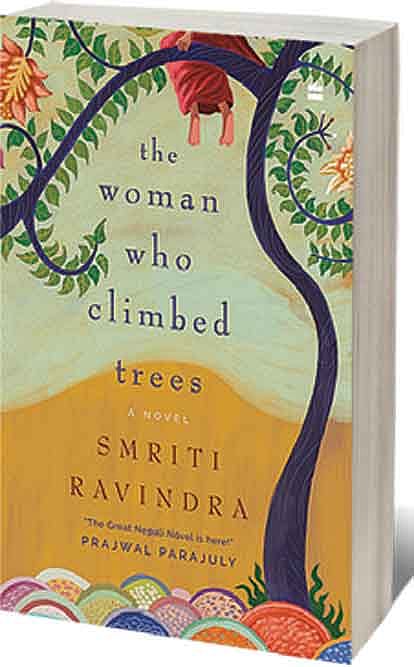The Tides of Terai

THE STORY BEGINS with a story, narrated by the barber’s wife, of a woman who was the second wife of a widower with two children, whom she brought up with love and happiness. Then, one night, her husband discovered, to his dismay, that she spent her nights on a tree, “enjoying the wind and the stars”. She was branded a witch and even her loving children rejected her. She was finally drowned in the river.
“Is this a ghost story?” Meena asked the barber’s wife. “I don’t want to hear scary stories one night before I marry.”
“Not all ghost stories are scary,” said the barber’s wife, laughing at Meena. “Besides, we have a long time before us, and stories are little baskets to carry time away in.”
This is the story of Meena, a happy young girl living in Darbhanga, and Manmohan, a Madhesi, a term used for people of Indian ethnicity living in the Terai region of Nepal. A marriage is arranged between Meena and Manmohan, a man who is immersed in his work and indifferent to her. Meena must create a new identity for herself in a strange place where she feels unwelcome, with a tyrannical mother-in-law who unhesitatingly takes away the jewellery of her daughters-in-law. The jewellery becomes one of the many reasons for major altercations till, finally, the mother-in-law gives it to her own daughter at the latter’s wedding. Manmohan spends most of his time in Kathmandu, which is far away from his little village where Meena, her mother-in-law and sister-in-law are ensconced in their little house. She is surrounded by women with their own limited hopes and lives. Her only companions are Kumud, her husband’s brother’s wife, and Kumud’s children. But Kumud rejects her love, while her mother abandons her. The author evokes images of pain and nostalgia for the home she has left behind, of a young girl with lost dreams.
AIming High
20 Feb 2026 - Vol 04 | Issue 59
India joins the Artificial Intelligence revolution with gusto
One day, a pregnant Meena says the unthinkable, that she wants her child to die. This statement returns to haunt her throughout her life, which consists of several miscarriages. Finally, Meena goes to Kathmandu to live with her husband. She has to forge a new life and identity in a strange place with a man she cannot love. She gives birth to a son and later a daughter. Hindi movies are her saviour, but her daughter cannot share her mother’s love for them. As the book draws to a climax, the daughter takes over the narration and the story takes an unexpected turn.
This is a story, which blends reality, myth, folktales, ghost stories and songs, creating a fairy tale world. Meena is lost in a strange country, a new home and her family’s refusal to take her back as she tries to manage the contradictions of her life. It is a story of patriarchy, where the men can do what they want but women have to observe societal norms. A girl is loved till she is ready to be married and must give up her own desires for a marital home and life.
It is a beautiful and evocative story of three generations of women: Meena, her mother Kaveri and her daughter Preeti, and of the pains of transiting from a happy parental home to an unhappy marital home. Men enjoy the freedom to lead their lives outside the home, while women are expected to quietly subjugate themselves, even becoming slaves. It is not a woman’s world. “Give me a kingdom of women, gé mai,/ And its wonders that I have dreamt today,” sings Kaveri.
Although this is her first published novel, Smriti Ravindra is an excellent craftswoman with words and situations, transiting easily from mother to daughter, husband to wife and a new daughter to a new mother. This is a story of subtle lesbian relationships and forced marriages. It also questions the limited roles of motherhood and whether a mother should let go of her children.

